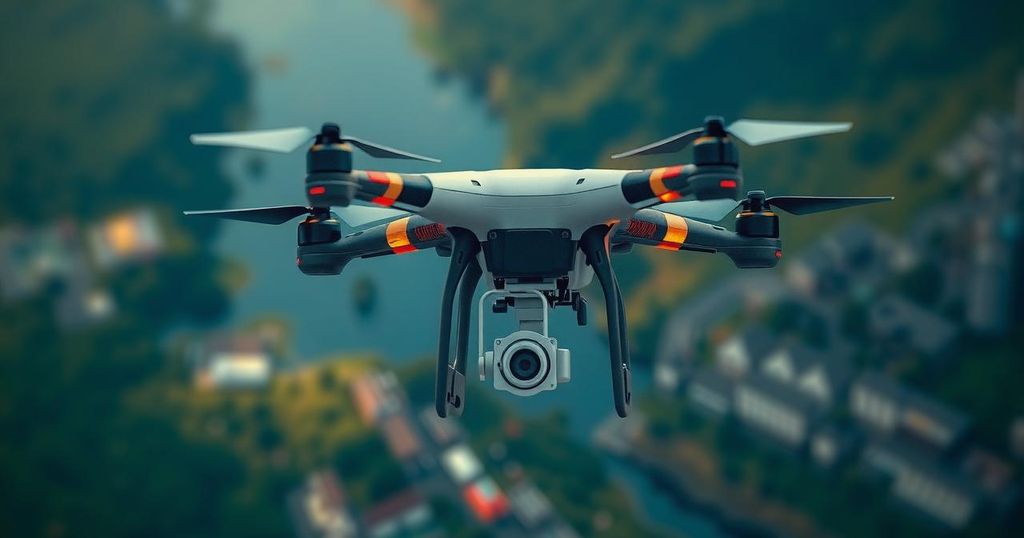Innovative UAV Project to Combat Climate Change: A Swedish-Colombian Initiative

The Combat Climate Change (C-3) UAV Project is a collaborative effort between Sweden and Colombia aimed at enhancing climate research through the use of unmanned aerial vehicles. The project, launched during COP16, involves specialized drones equipped to gather data on greenhouse gas concentrations and assess the health of vital ecosystems. The initiative highlights the importance of international cooperation in addressing climate issues and showcases advanced technological applications in environmental monitoring.
In a significant step towards combating climate change, the Governments of Sweden and Colombia have announced the Combat Climate Change (C-3) UAV Project, an innovative collaboration that aims to enhance climate research through advanced unmanned aerial vehicle (UAV) technology. The initiative, launched during COP16, is a joint effort involving Sweden’s Minister for Climate and the Environment, Romina Pourmokhtari, and Colombia’s Minister of Science, Yesenia Olaya, alongside contributions from Saab, EAFIT University in Colombia, and KTH Royal Institute of Technology in Sweden. The newly developed UAV will be equipped with specialized sensors designed to monitor greenhouse gas emissions, including methane and carbon dioxide, as well as other atmospheric pollutants. The UAV’s operational capabilities will extend to evaluating the health of vital ecosystems, such as the Amazon rainforest and agricultural lands, allowing for the detection of shifts in vegetation and soil conditions. By integrating UAV-collected data with existing satellite imagery, the project aims to create comprehensive and actionable insights regarding climate dynamics. These insights will be further enhanced by applying mathematical modeling and artificial intelligence to improve understanding and management of climate-related challenges. “We are pleased to announce this landmark initiative, which not only exemplifies the robust cooperation between Colombia and Sweden but also celebrates our shared commitment to technological innovation for environmental protection and monitoring,” states Romina Pourmokhtari. Minister Yesenia Olaya highlights the initiative’s alignment with the Colombian government’s climate change mitigation priorities. Eva Axelsson, Head of Group Sustainability at Saab, emphasizes the significance of innovation and collaborative efforts in addressing climate concerns, underscoring Saab’s role in supporting this transnational project since its inception in February 2023. The successful development of the UAV has provided research engineers from KTH Royal Institute of Technology and EAFIT University an invaluable opportunity to engage in international cooperation, strengthening the so-called Triple Helix model by aligning scientific research with societal and market needs.
Climate change poses a significant threat to global ecosystems and human societies. The necessity for effective monitoring and research has driven nations to seek innovative solutions to better understand environmental dynamics. Drones have emerged as a key tool in this endeavor, enabling researchers to gather data on greenhouse gas emissions, monitor biodiversity, and assess ecological health. The Combat Climate Change (C-3) UAV Project exemplifies international collaboration aimed at leveraging technological advancements to combat climate change, specifically through the innovative use of unmanned aerial vehicles.
In conclusion, the Combat Climate Change (C-3) UAV Project marks a landmark collaborative effort between Sweden and Colombia that harnesses innovative UAV technology for climate research. By focusing on measuring greenhouse gases and evaluating ecosystem health, this initiative not only underscores the importance of international cooperation in addressing climate change but also reflects the shared commitment to advancing scientific understanding through technological innovations.
Original Source: www.saab.com







